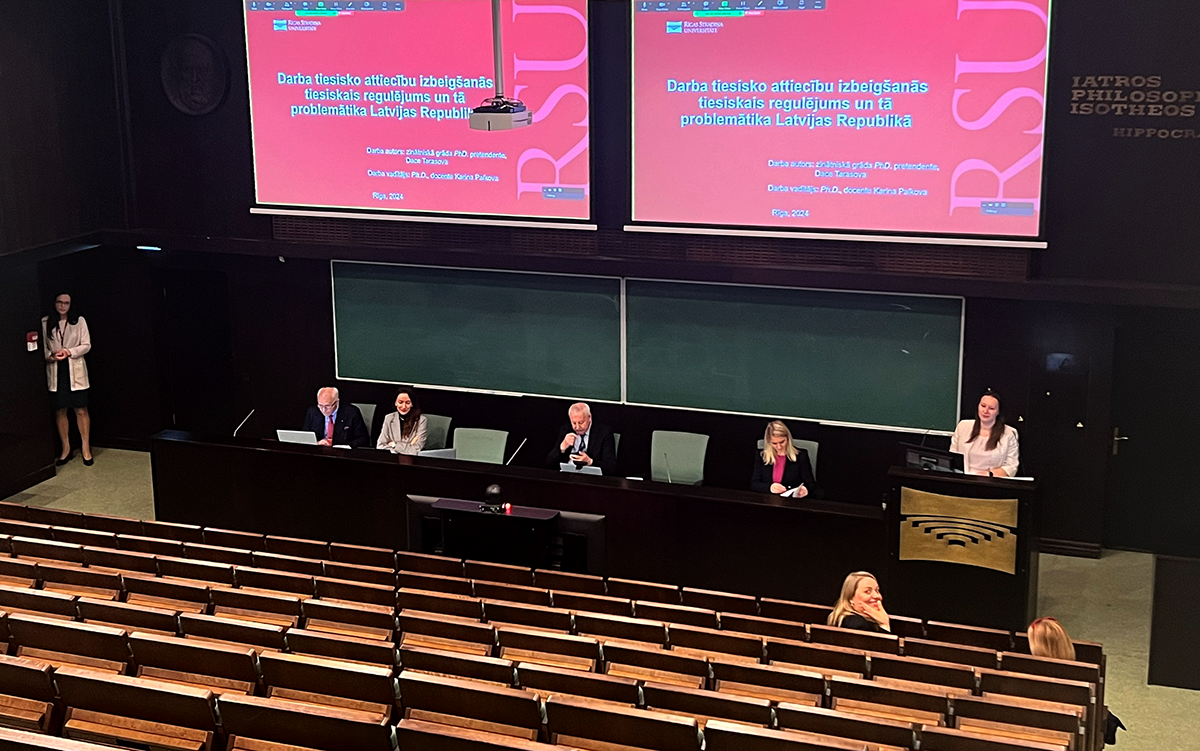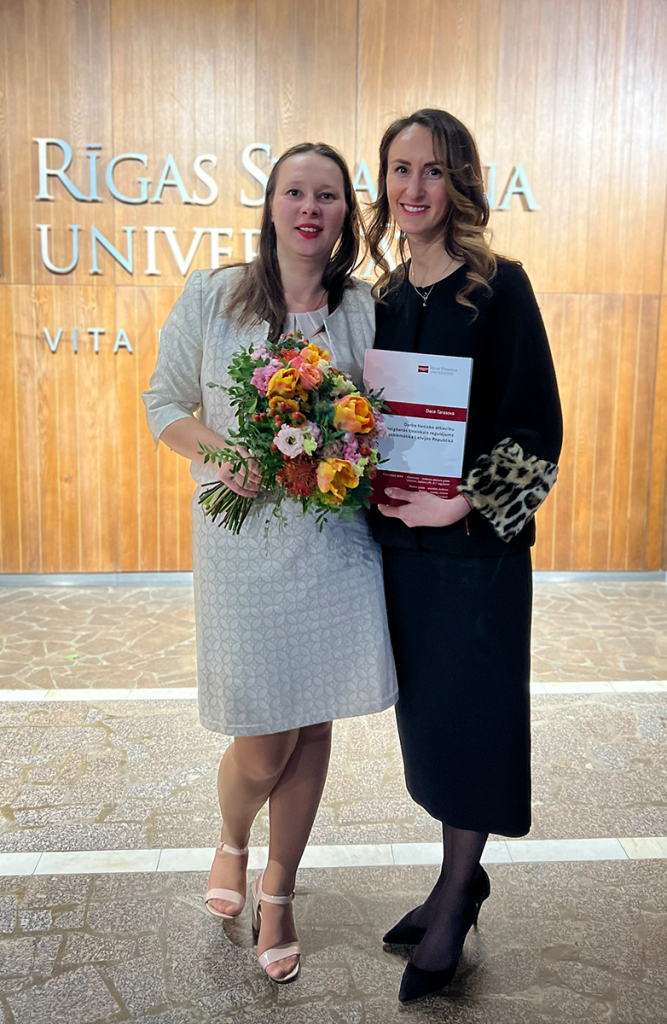Dissertation thesis on the legal regulations for terminating employment in Latvia
On 5 March, Dace Tarasova, a Social Sciences PhD student at Rīga Stradiņš University (RSU), defended her doctoral dissertation “Legal Regulation of Termination of Employment Relationships and Its Issues in the Republic of Latvia”.

The topic of employment relationships has always been relevant, but with the increase in cases of mobbing and bullying in labour disputes, for example, interest in studying this behaviour has grown. In her doctoral dissertation, Tarasova studied the issue of terminating employment relationships in the context of the potential of social function. At the same time, the study focused on a number of topical issues related to terminating employment relationships that require immediate and appropriate legal solutions to meet the needs of modern society.
According to the European Social Charter, member states must develop and implement employment policies that are as balanced and consistent as possible, with the aim of minimising unemployment and guaranteeing people the right to earn a living through a freely chosen occupation. The National Development Plan of Latvia 2021–2027, approved by the parliament, also emphasises the need to take measures to achieve a substantial economic growth, including stimulating employment, developing the competences of the population, and increasing competitiveness in the labour market.
Based on current case-law and jurisprudence, it should be recognised that the influence of various subjective factors on the employer’s decision-making has become quite a significant problem in cases of termination of employment relationships, as has a lack of objectivity in adequate reasoning for and justification of the termination, especially in cases where the termination is related to an employee’s behaviour. The problem of employers’ interpretation and practical application of legal provisions remains a recurring issue, where employers implement an incomplete, facta concludentia unlawful termination process, which most often results in the initiation of legal proceedings. The doctoral dissertation that was recently defended, examined models for addressing these issues.
According to doctoral supervisor, Karina Palkova, PhD, ‘the scientific novelty of the dissertation is how it studied the social function of labour law in cases of termination of employment relationships. Currently, the underused potential of the social function of labour law leads to labour disputes, which generally hinder the stable socio-economic growth of the country. The author of the dissertation has underlined the importance of the social function in the context of employment relationships through an extensive analysis of case-law and scientific literature.’

Dace Tarasova (left) together with her PhD thesis supervisor Karina Palkova after defending her thesis
Related news
 Building resilience in the face of chronic pain: RSU lecturer’s dissertation findingsRSU research synapses, RSU in the news, For Students, For RSU Employees, Research
Building resilience in the face of chronic pain: RSU lecturer’s dissertation findingsRSU research synapses, RSU in the news, For Students, For RSU Employees, Research


